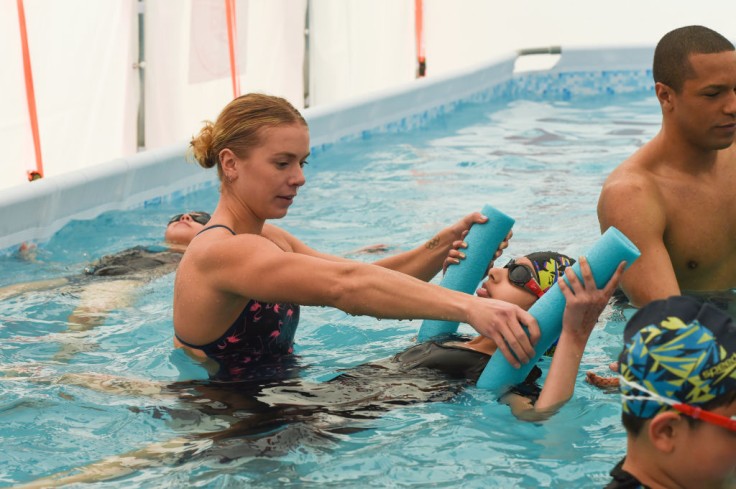
Protect your kids this summer. Families eagerly flock to pools, seeking relief and fun as the summer sun shines brightly and temperatures rise. However, amidst the excitement, parents must prioritize the safety of their children.
Every year, thousands of accidents and injuries occur in and around pools, making it imperative to equip ourselves with the knowledge and practices that can prevent these unfortunate incidents.
In this comprehensive guide, we will explore the top 10 pool safety tips every parent should know, providing you with essential information and practical advice to create a secure environment and ensure a worry-free summer by the poolside.
From understanding the importance of supervision and the dangers of breath-holding games to learning how to respond in emergencies and the significance of properly fitting life vests, this article will empower you with the tools and knowledge needed to keep your children safe while enjoying the refreshing waters.
So, let's dive in and discover the key practices that will help safeguard your family, enhance pool safety, and create lasting memories of joy and relaxation this summer.
10 Tips To Protect Your Kids This Summer
1. Always Have a Buddy System: No Swimming Alone
According to Carithers Pediatric Group, one of the fundamental rules of pool safety is to never allow children to swim alone. Enforce a buddy system where each child is always accompanied by a responsible adult or a designated swimming partner. This simple rule can significantly reduce the risk of accidents and provide immediate help if needed.
2. Skip Breath-Holding Games: Protect Against Hypoxic Blackout
While breath-holding games may seem innocent, they pose a significant risk of hypoxic blackout, a condition where swimmers lose consciousness due to a lack of oxygen. Educate your children about the dangers of these games and discourage them from participating to prevent any potentially life-threatening situations.
3. Don't Swim When Sick: Protect Others and Yourself
Teach your children the importance of not swimming when they are feeling unwell. Illnesses such as diarrhea can easily spread in the pool, exposing others to harmful bacteria and viruses. By keeping sick children out of the water, you help maintain a hygienic environment and safeguard the health of all pool goers.
4. Avoid Swallowing Pool Water: Stay Healthy and Safe
Swimming pools contain chlorine and other chemicals to maintain water quality. Encourage your children to avoid swallowing pool water, as it may cause stomach discomfort or lead to the ingestion of harmful chemicals. Remind them to rinse their mouths with fresh water after swimming to further minimize any potential risks.
5. Walk, Don't Run: Prevent Slips and Falls
Pool decks can become slippery due to water splashes and wet feet, increasing the chances of slips and falls. According to the Texas Swim Academy, teach your children to walk, not run, around the pool area to minimize the risk of injuries. Setting a good example by practicing this rule yourself will reinforce its importance.
6. No Diving in the Shallow End: Prevent Head and Neck Injuries
Diving headfirst into the shallow end of the pool can result in severe head and neck injuries. Ensure your children understand the depth limits of different areas in the pool and discourage diving in areas where it's not safe. Emphasize the importance of diving only in designated deep areas.
7. Don't Play Around Drains and Covers: Prevent Entrapment Hazards
Pool drains and covers can pose serious entrapment hazards, especially for young children. Teach your children to stay away from these areas and never play or swim near them. Regularly inspect the pool for any loose or broken drain covers and report any concerns to the pool owner or management immediately.
8. Listen to Instructions and Obey Pool Rules: Stay Informed and Safe
Whether you're at a public pool or a private one, it's crucial to pay attention to lifeguards, pool staff, or posted rules and signage. Instruct your children to listen to instructions and follow the pool rules at all times. This helps maintain order, prevent accidents, and create a safe environment for everyone.
9. Learn CPR: Be Prepared for Emergencies
Having CPR (cardiopulmonary resuscitation) skills can be invaluable in emergencies where someone experiences a near-drowning incident or other cardiac events. Consider enrolling in a CPR certification course to equip yourself with life-saving techniques. Knowing CPR can make a significant difference in saving a life while waiting for professional medical help to arrive.
10. Wear Life Vests When Needed: Enhance Water Safety
According to the Red Cross, for younger or less confident swimmers, wearing U.S. Coast Guard-approved life vests can provide an extra layer of safety and buoyancy. When engaging in activities such as boating, kayaking, or playing in deeper water, ensure that your child wears a properly fitted life vest to minimize the risk of accidents.
By adhering to these top 10 pool safety tips, you can create a safe and enjoyable swimming environment for your children this summer. Remember, vigilance and education are key.
Establishing good practices and promoting water safety awareness will go a long way toward preventing accidents and ensuring a memorable, fun-filled summer for the whole family. Prioritize pool safety, and let the splashing begin!